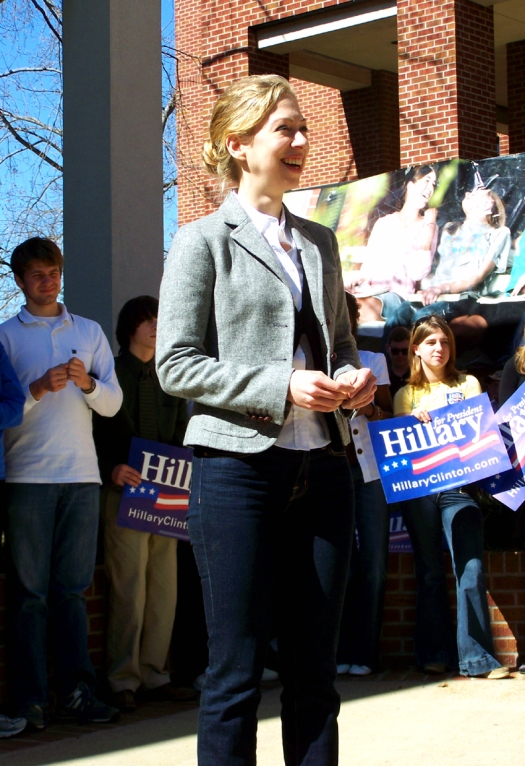My mother Monette Morgan Young was born in 1915 on a small farm east of the village of Reid in the northeast part of Calhoun County on the old road to Houlka. She was the daughter of Hosea Morgan and Eula Murphree Morgan, and was an only child. The lack of siblings and nearby neighbor children made her childhood lonelier than most. Her mother was a teacher for many of Monette’s early years, moving around from one one-room community school to another and lodging with someone in that community during the short school term each year. She took Monette with her while Hosea stayed home to take care of the farm. When schools were not in session, all three worked hard to raise enough food and “bring in” a small cotton crop to sell for their cash needs.
Monette was a reader and a writer; she loved poetry and history. In her later years, Monette began to write of her growing-up days and her life on that farm. Like many people as they grow older, she became interested in family history and began a decades-long period of formal research and the gathering of family stories from surviving aunts, cousins and others who had lived in Reid. Her cousin Clarence Morgan was a great source of family and community information; and she and he made many trips, some with grandkids along, to old cemeteries and old communities barely recognizable by then with the changes of time.
In the early 1980s she began sending me long letters—some she typed but most were handwritten in a hurried scrawl—letters with information she had gathered about not only our family but also about other families who lived in that area and her memories of them and her life there. As I saved her letters, I began to realize that if the material was organized, edited a bit, fleshed out with a map or two, and if I took the various bits of information about, for example, the Clark family or the community social life, and put those together and did likewise with other topics, this might make an interesting memoir as well as a useful genealogical and historical resource. I did that. It took months in those pre-computer days, but it began to come together. I finished typing it and decided I’d have a few copies made for me and my children and would give her a few copies on her 75th birthday. I called it “The Cherry Hill – Poplar Springs – Reid Community in Calhoun County, Mississippi”. She was delighted, but said several times, “If I had known you were going to do this, I’d have written this or that, or would have not said that, or would have added the story about….” I told her to consider it a draft and to add or subtract whatever she wanted, and I’d revise the book accordingly. She did, and I did. After Mother died in 2000, I created a second edition of the book, adding the additional material and cleaning up some typos and some errors that had been pointed out. Over 100 copies of that second edition were subsequently made and a digital version is available on the internet for free download.
Holidays
(an excerpt from The Cherry Hill – Poplar Springs – Reid Community in Calhoun County, Mississippi, by Monette Morgan Young
We did not do lavish Christmas cooking, not in our circle of acquaintances and kin, nor did we do lavish Thanksgiving cooking. We usually had fresh pork both times and often our meat would be a huge pot of backbones. If the hog killing had been in the last day or two before the holiday, we had the most prized meat of all, the loin strip. Our men did not make pork chops of any cut of hog. That long lean strip was taken out without bone and how I looked forward to it. I hated any boiled meat. Mother and all her acquaintances and kin only boiled or fried meat. One reason for that is that they did not know of roasting procedures and second that it would have required oven cooking and use of much stovewood. They could boil a piece or pieces of meat in the black iron cooking pot on the coals on the hearth by the fire which was already going for warmth. Mother would make good dressing with that water and we always had small Bermuda onions growing in the garden all winter. These grew in clusters and did not decay as the large ones did and were not hot. Mother did not have to buy sage. She grew it, dried it in a slow oven and so we had sage and onions for dressing and since I always contended for fried meat, she fried something for me. We sometimes did have a hen boiled but since I wouldn’t eat boiled meat, she had to do the frying for me and I ate dressing with that.
Usually Thanksgiving Day was just another day. Daddy was sometimes up to his ears in corn gathering and we cooked a little better dinner. Some meat as I have described, maybe a molasses cake with the dried apple filling and frosting, one or two or three of the many vegetables in storage, canned or dried, the usual dish of pickles, preserves, canned berries, or peaches, on the table. Christmas would be the same with the exception of a coconut cake. Mother always cooked a large luscious coconut cake. She used only her simple two-egg recipe for the batter (2 eggs, ¾ cup milk, 1-1/3 cup sugar, 1/3 cup fat, 2 cups flour, 3 teaspoons baking powder, 1/2 teaspoon salt), but we always got a fresh coconut and she filled and covered the cake lavishly with frosting and coconut. Then she always had Daddy to buy the cone-shaped frosted jellied candies, assorted colors. She topped the cake with those and it looked like tiny frost-covered shapes of color in a snow bank. That was her specialty. I never saw or read of a fruit cake. With all our folks, just ordinary cakes were made. A little more lavish perhaps, was a Christmas cake, or was called so.
We often saw no one but ourselves on Christmas Day. The weather would have been too bad to venture forth. My parents had bought a little fruit and a few nuts. Oranges still always smell like Christmas. We had them no other time unless someone was really sick. Those little home-grown apples smelling like all the aromas of Araby would still be crisp and we would allow ourselves a few more of those unwrapping them from the Sears Roebuck catalog pages that were used to protect them and out of their cardboard boxes from under the bed in the front room. We got a few raisins, the seeded ones still on stems, I never taste such now.
If we did not go to Mama Murphree’s on pretty Christmas days we would walk to Grandaddy Morgan’s. My parents occasionally bought a box of lemon stick candy. At Grandfather’s he would bring out his goodies. He may have sent to town for a bushel of shipped in apples, which then I preferred to our small homegrown ones, and he had oranges and several boxes of candy. He always bagged up a large paper bag for us to carry home. Uncle Alsie’s children made their home at Grandaddy’s and Grandmother’s. These were Euras, Theda, Roy and Lois. Lois was near my age, the youngest. So I would get to see the cousins there.
One favorite toy at Christmas time for parents and teachers to give children was a harmonica. At that time, all children were given gifts by teachers. A harmonica, which we called a French Harp, cost all of a nickel or a dime. A good sized professional one might cost a quarter. I invariably wanted one. Of course, I had not a musical bone in my body. I made noise on it, and that was all. Another gift that teachers most often gave was a “bought” toothbrush. Our toothbrushes were off the black gum bush or the black gum tree. They made a large tree, but the woods were full of the small ones and we got a good sized twig about as large as a small cedar pencil, peeled the bark down about an inch and a half and the whole thing was about six inches long. We chewed the peeled end into a mop shaped thing and brushed our teeth with that. We used ashes or baking soda. I recall that Daddy used ashes.
I had bountiful Christmases. I always got one special large gift and one or two small ones. Also there were the oranges and raisins which we did not get at other times, not often. There was candy too, then, but seldom at other times. My victory over my nice pretty things was a little hollow, with no one to show them to or to play with them with me. Some other children of the area did not get anything but the candy, nuts, and fruits. Christmas was a very quiet celebration then. The weather was usually bad and the roads almost impossible to travel on, so family get-togethers were never planned. We almost always got to both my grandparents during the Christmas week. At “Mama” Murphree’s sometimes we got to see other cousins, sometimes not. At the Morgan grandparents, my four cousins who made their home there were always at home and I enjoyed them. Friends and relatives did not exchange gifts. We had no church programs. We didn’t try to plan for such due to not knowing what the weather might do. Mother tried to see that I had a good Christmas. When she was a child, they had had usually nothing except a little candy and one time nothing at all. One Christmas there was a bisque doll with curls for me and one time there was a big sleeping doll and a cloth body–perhaps a paper mache head with painted-on reddish blonde hair. That day it rained all day. We never got outside.
When I was about four, Tellie Murff and Winnie Davis gave me some lovely Christmas gifts. I think Tellie gave me a beautiful ball and some of the best of candy. Winnie gave me a box of blocks, some of which were painted to form the facade of an antebellum house. They were still in the house when all of the things had to be sold and/or given away when Daddy got sick. Some winter Sundays we couldn’t go to church. We’d have Sunday school at home. My Father was well read in the Bible. He was on speaking terms with the old Bible Patriarchs. We three would read and discuss the lesson while pork backbones simmered in the kitchen, they for our Sunday dinner, and while sweet potatoes baked and while perhaps dried peas or butterbeans cooked.










